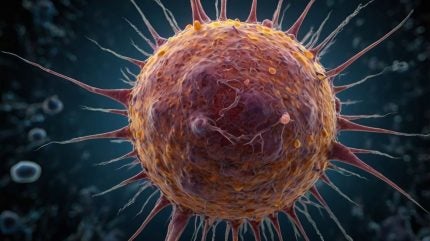
Innate Pharma has received clearance from the US Food and Drug Administration (FDA) for its investigational new drug (IND) application to commence a Phase I trial of IPH4502 for solid tumours.
IPH4502 is a topoisomerase I inhibitor antibody-drug conjugate (ADC) targeting Nectin-4 solid tumours.

Discover B2B Marketing That Performs
Combine business intelligence and editorial excellence to reach engaged professionals across 36 leading media platforms.
The Phase I study, set to commence in the next few months, is designed as an open-label, multicentre trial.
It will be conducted in two parts: part one dose escalation and part two dose optimisation.
The trial aims to evaluate the tolerability, safety and initial efficacy of IPH4502 when administered as a single agent.
Patients with advanced solid tumours known to express Nectin-4 will be enrolled in the study.

US Tariffs are shifting - will you react or anticipate?
Don’t let policy changes catch you off guard. Stay proactive with real-time data and expert analysis.
By GlobalDataThese include, but are not limited to, people with urothelial carcinoma, non-small cell lung, breast, ovarian, gastric, and colorectal cancers.
Nectin-4 is a cell membrane adhesion protein that is overexpressed in several types of solid tumours such as urothelial, breast, oesophageal, lung, ovarian, and pancreatic cancers.
It is notably less expressed in normal tissues, making it a promising target for cancer therapy.
IPH4502 showed significant anti-tumour efficacy both in vitro and in vivo in non-clinical models.
Innate Pharma chief medical officer Dr Sonia Quaratino said: “We are thrilled to advance the IPH4502 programme, and the IND application acceptance is an important milestone for Innate, as this is our first ADC programme to enter the clinic.
“IPH4502 is a novel and differentiated Nectin-4 ADC that has the potential to provide a new therapeutic option for patients with a cancer expressing a wide range of Nectin-4. Through this Phase I study, we aim to advance the research on our ADC technology for the benefit of patients.”





